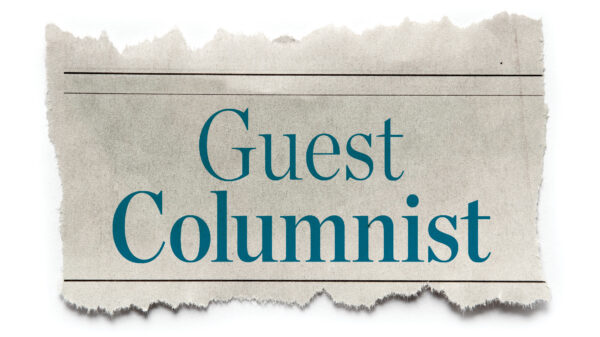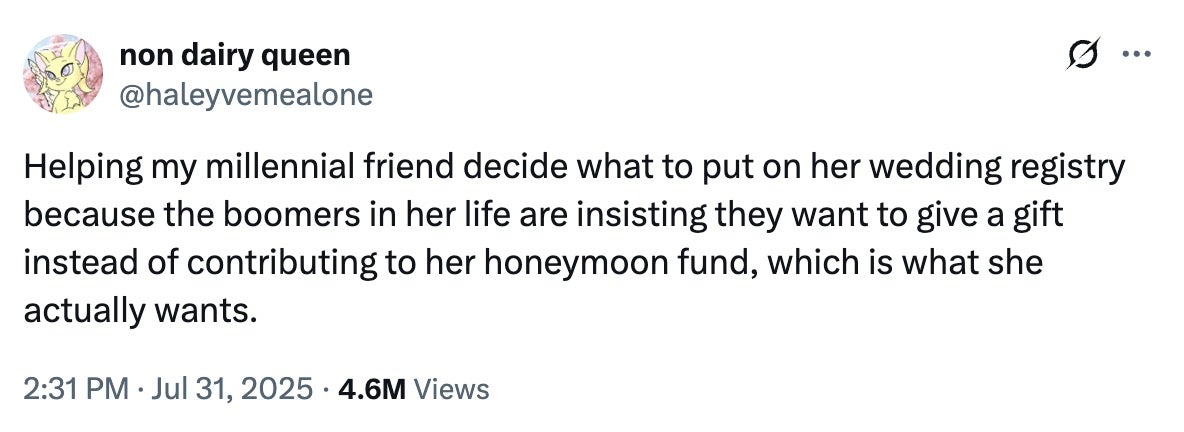The debate over whether couples should request honeymoon funds instead of traditional wedding gifts has ignited a significant discussion online, revealing deep generational divides. This conversation gained traction in late July 2023, when a Twitter user, @haleyvemealone, highlighted the conflict faced by a millennial friend whose baby boomer relatives prefer to give physical gifts rather than contribute to a honeymoon fund.
A growing number of couples are opting for honeymoon funds as they often find themselves in a position where they already own the household items typically found on wedding registries. Many millennials, now in their 30s and early 40s, have established their households long before tying the knot. This shift reflects changing lifestyles, as more couples cohabit before marriage, leading to a blend of personal belongings that may render traditional gift registries redundant.
For those who do not require additional household items, the idea of requesting funds for their honeymoon feels more aligned with their needs. The rising cost of living also influences this choice, as many couples find that honeymoon funds are crucial for affording their post-wedding getaway.
The notion of asking for honeymoon funds, however, raises eyebrows among some traditionalists, particularly baby boomers. For many from this generation, the established norm has been to select specific gifts for couples, and they often view direct monetary requests as inappropriate. The debate has sparked varied opinions, with some arguing that couples should simply decline gifts if they do not need items, while others insist that guests will want to give something, regardless of the couple’s needs.
Comments from social media illustrate the heated nature of the debate. Some users express that asking for honeymoon funds is “tacky,” while others defend the practice, suggesting that it is better to receive cash for meaningful experiences rather than unnecessary household goods. One user pointed out that asking for cash is not inherently rude, but rather a practical solution for those who have already established their homes.
The conversation also touches on cultural differences regarding gift-giving. In various cultures, it is common to present cash at weddings, which contrasts sharply with the American tendency to favor physical gifts. As one commenter noted, cash gifts are often accepted without hesitation among wealthier circles, indicating that perceptions of what is acceptable can vary significantly based on individual backgrounds and experiences.
Many couples, especially those who have lived together prior to marriage, feel a disconnect with the idea of traditional gift registries. They often argue that their needs have already been met through years of cohabitation and that cash gifts for experiences, like honeymoons or future savings, would be more beneficial.
The ongoing discussion highlights a broader cultural shift in attitudes toward marriage, gift-giving, and the financial realities that many couples face today. As millennials continue to navigate their wedding planning in the context of evolving societal norms, it is clear that the debate over honeymoon funds versus traditional registries will persist, reflecting the diverse perspectives of different generations.
Ultimately, the question remains: Should couples be free to ask for what they truly want, or should they adhere to the traditional norms that many still hold dear? The evolving landscape of weddings and gift-giving suggests that this conversation is far from over.






































































